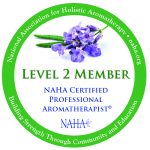More often than not, when I see a client I notice that they are “all scrunched up.” When they walk or when they sit, I can see their shoulders all scrunched up into their neck. Seeing this, I know there is tension, and the the sympathetic nervous system is in the driver’s seat.
The sympathetic nervous system is our “fight or flight” response, not only helping us to become highly alert as if we are being chased by a bear, but also contributing to our demeanor every single day as we go through our life’s activities. It helps us to deal with the stresses of the day, problem solve, and basically get the things done that we need to get done. The problem is, we more often than not do not allow it to back off so we can relax.
We are very busy people. We are constantly on the go. Social media keeps our minds moving faster and longer than we have ever in history experienced. We have our faces in our electronic devices from the time we wake up until the time we go to bed. We are constantly stimulated to the point that our sympathetic nervous system really never has much of a chance to deactivate.
The deactivation of our sympathetic nervous system ushers in the activation of our parasympathetic nervous system. This system is our “rest and digest” response. In this state, we relax. We rest our minds and our bodies. Our minds are not heavily stimulated, and we can just be. We are meant to be in the “rest and digest” mode more often than just at bedtime; and sometimes even if we are in bed and sleeping, our parasympathetic nervous system is still not in engaged. This, of course, leads to lousy sleep, chronic tiredness, and a failure to heal properly because the body does not do an adequate job of repairing itself.
As a result of our constant stimulation and overstimulation, it is up to us to ensure we allow our bodies to pull out of sympathetic mode and push into parasympathetic mode. We need to “drop our shoulders.” When we relax the tension begins to melt away. Our shoulders drop. When our shoulders drop, we can feel the tension release and feel ourselves begin to breathe again; and depending on how long we have been “all scrunched up”, that release can be quite dramatic.
There are many things we can do to “drop our shoulders.” Here are few tips:
- We can shut off our electronic devices at a certain time every single evening, and just let ourselves relax.
Perhaps we can read a PAPER book. Perhaps we can listen to some relaxing music while we knit or crochet. Perhaps we can engage in non-stimulating conversation with others around us.
- We can take a relaxing bath. A good relaxing bath can help us “drop our shoulders” and just be in the moment. A soak in the bath can allow us to not only relax our bodies, but lay back and clear our minds as well. We can just be — allowing our minds to wander to whatever place we might be taken. A little mood music can be helpful, as can a relaxing book; and so can darkness save a few candles for ambiance. A good half hour soak can do us wonders, kick in that parasympathetic response, and “drop our shoulders.”
- A good dose of aromatherapy can also do wonders for helping us “drop our shoulders.” Is there a scent that just takes you to another place that you love dearly? Is there a scent that just makes you totally relax when you smell it? Aromatherapy can take us to those places. My favorite scent in the whole entire world is the scent of Linden flowers. For me, it is ethereal. When I smell the scent of Linden, my shoulders drop immediately as I take in scent and revel in it. There are other scents that do the same, but not quite the same way Linden does. What’s your favorite scent? Find that scent, revel in it, and let it “drop your shoulders.”
- Meditation can also be beneficial to help us “drop our shoulders.” Meditation helps us to focus on not being stimulated or overstimulated. It “talks down” our sympathetic nervous system, giving way to the parasympathetic. I wrote are article about it earlier this year. Take a look there for some good pointers.
- Enjoy a good story. I mentioned above about books. But there is another way we can enjoy a good story, and this by listening to a book. Stories can take us away and help us to relax from our daily activities. A good relaxing story (not suspense or any type of thriller) will have us “dropping our shoulders” in no time. Perhaps Alice in Wonderland, Peter Pan, or any of the classics can help us to “drop our shoulders.” I use an app called “Calm” which not only has fantastic mediations but also includes stories — bedtime stories. Just sitting down or laying down and listening to one of these stories can help us to relax and “drop our shoulders.”
- How about a walk in nature? Or just sitting out in nature? Want to drop your shoulders quickly, then walking in the calm of nature — or even better, sitting in the calm of nature — can “drop our shoulders” in no time. Focusing on nature and the sounds around us relaxes us in ways nothing else might be able to do.
- Care for a cup of tea or hot chocolate? The ritual of making a relaxing tea, pouring it, and enjoying it over a good book — or even better, a good conversation, sharing the tea with others — can “drop our shoulders” in short order.
There are a number of ways to shut off our sympathetic nervous system and engage our parasympathetic nervous system. These are just but a few. I know; it’s hard to not “be busy” all the time. We have been conditioned to think we need to be busy all the time, and if we are not, we tend to get “bored” (or we think we will). It’s hard. Stimulation and overstimulation have become a habit for most of us. The key to reversing this process is to find something that does not require lots of “brain power” and that is not stimulating; and to make sure we engage in these activities daily. With a little practice, we can reel ourselves in, switch off, and learn to “drop our shoulders.”
So, just take some time. Nurture yourself. Allow yourself to relax daily. In other words, “drop those shoulders.”






